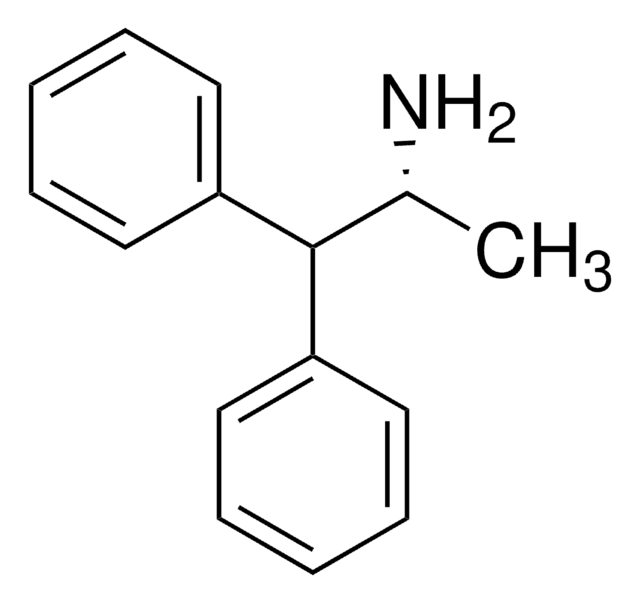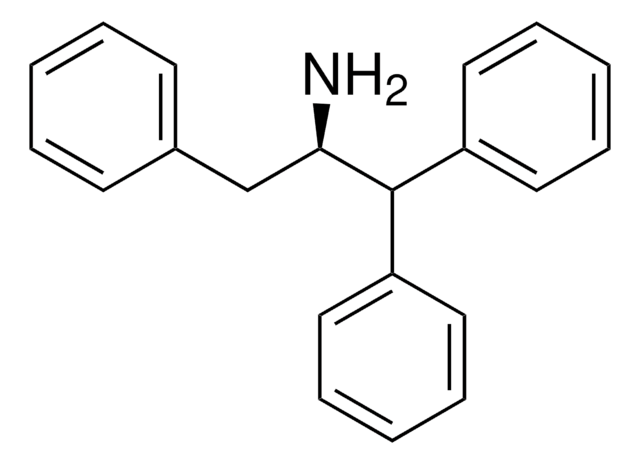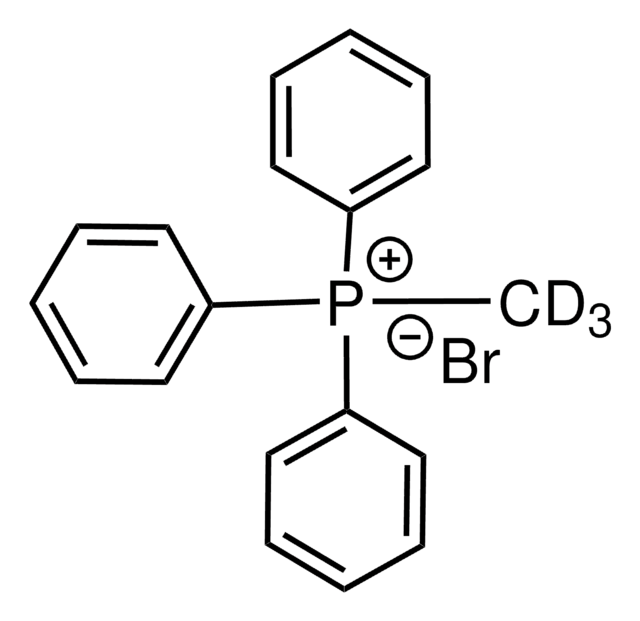All Photos(1)
About This Item
Linear Formula:
C6H2ClCH3(NO2)2
CAS Number:
Molecular Weight:
216.58
MDL number:
UNSPSC Code:
12352100
PubChem Substance ID:
NACRES:
NA.22
Recommended Products
Assay
97%
form
solid
mp
87-91 °C (lit.)
SMILES string
Cc1cc(Cl)c(cc1[N+]([O-])=O)[N+]([O-])=O
InChI
1S/C7H5ClN2O4/c1-4-2-5(8)7(10(13)14)3-6(4)9(11)12/h2-3H,1H3
InChI key
KPDPGZNHKMJEFZ-UHFFFAOYSA-N
General description
A molecular imprinted polymer (MIP) based electrochemical impedimetric sensor has been fabricated for the sensitive determination of 5CDNT. Low-detection-limit of 5CDNT was observed to be 0.1μM using this sensor.
Application
5-Chloro-2,4-dinitrotoluene (5CDNT) may be used to synthesize 5-methyl-6-nitrobenzofuroxan.
Signal Word
Warning
Hazard Statements
Precautionary Statements
Hazard Classifications
Skin Sens. 1
Storage Class Code
11 - Combustible Solids
WGK
WGK 3
Flash Point(F)
Not applicable
Flash Point(C)
Not applicable
Personal Protective Equipment
dust mask type N95 (US), Eyeshields, Gloves
Certificates of Analysis (COA)
Search for Certificates of Analysis (COA) by entering the products Lot/Batch Number. Lot and Batch Numbers can be found on a product’s label following the words ‘Lot’ or ‘Batch’.
Already Own This Product?
Find documentation for the products that you have recently purchased in the Document Library.
The reaction of 2, 4, 5-trinitrotolouene with hydroxylamine.
Bailey AS, et al.
Tetrahedron, 22(3), 995-1000 (1996)
Development of highly selective electrochemical impedance sensor for detection of sub-micromolar concentrations of 5-Chloro-2, 4-dinitrotoluene.
Goud KY, et al.
Journal of Chemical Sciences (Bangalore), 128(5), 763-770 (2016)
Alena Tierbach et al.
Toxicological sciences : an official journal of the Society of Toxicology, 176(2), 355-365 (2020-05-20)
Zebrafish (Danio rerio) early life stages offer a versatile model system to study the efficacy and safety of drugs or other chemicals with regard to human and environmental health. This is because, aside from the well-characterized genome of zebrafish and
Our team of scientists has experience in all areas of research including Life Science, Material Science, Chemical Synthesis, Chromatography, Analytical and many others.
Contact Technical Service



![5-Bromo-6-fluoro-1H-benzo[d]imidazole](/deepweb/assets/sigmaaldrich/product/structures/420/061/3fa5577b-687d-42b2-9fe3-11d353aaad4f/640/3fa5577b-687d-42b2-9fe3-11d353aaad4f.png)





